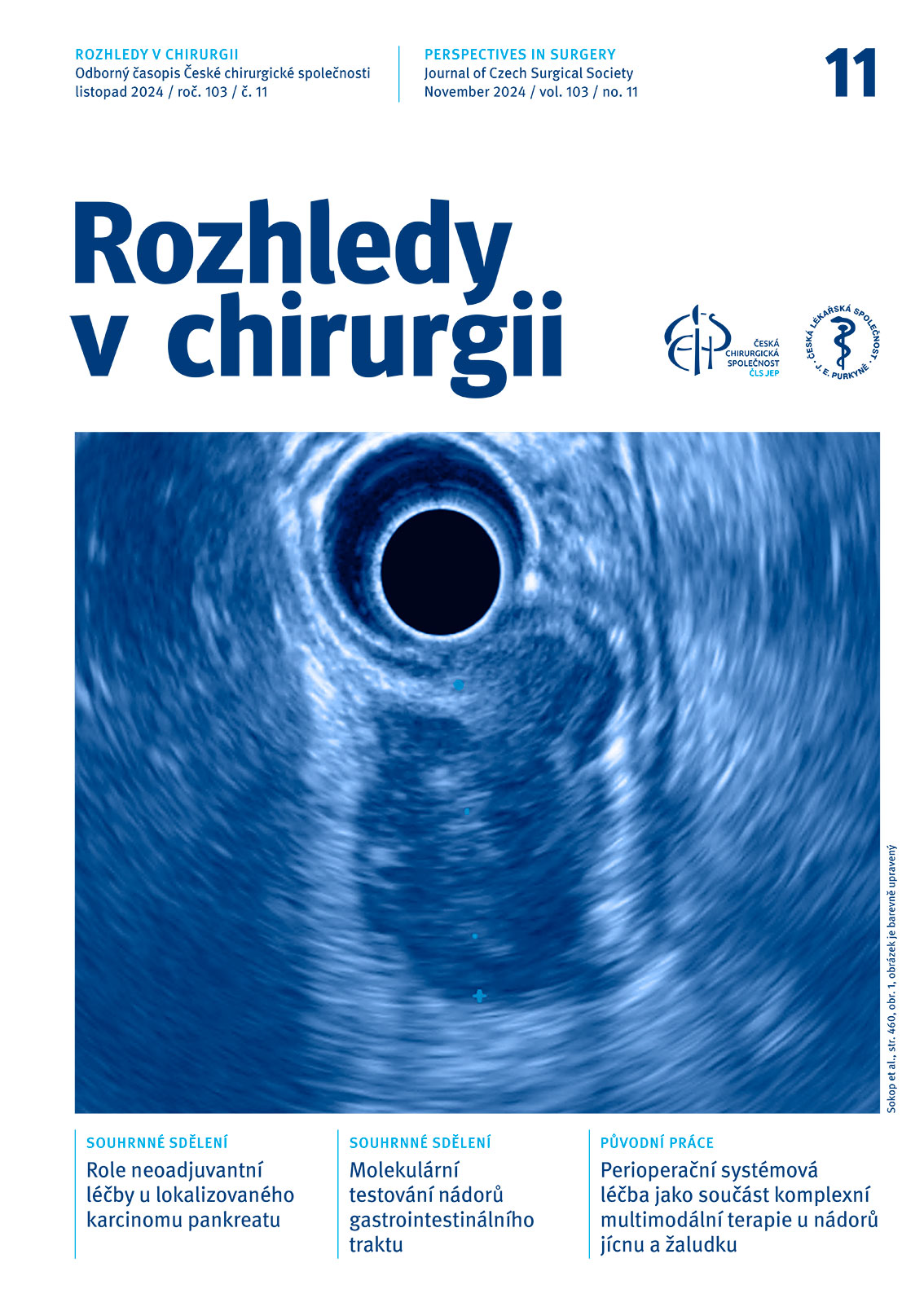Abstract
In addition to the histological diagnosis, grade and stage, predictive testing plays a crucial role in gastrointestinal tumours today. This is mainly used to identify molecular targets for modern cancer therapy. In esophageal and gastric cancers, HER2 expression and amplification, mismatch repair (MMR) system protein deficiency and PD-L1 expression are tested routinely. In colorectal cancer, it is namely detection of RAS (KRAS and NRAS) and BRAF mutations, as well as the assessment of microsatellite instability; targetable gene fusions are found rarely only. In pancreatic cancer, cases of MMR deficiency, BRCA1/2 mutations and other targetable aberrations can be identified quite rarely. In gallbladder and biliary tract cancers, we are mainly looking for IDH1 and IDH2 mutations, FGFR2 gene fusions and mutations, HER2 amplifications or mutations, as well as mutations of BRAF or BRCA1/2. All results should be discussed within the molecular tumor board.
doi: 10.48095/ccrvch2024437


